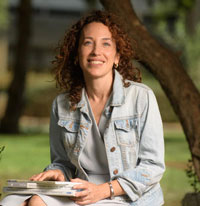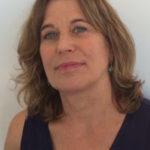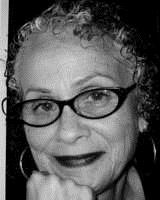The IARPP Muriel Dimen Fellowship honors the tradition of academic rigor, creativity, and challenge that Muriel Dimen’s thinking brought to psychoanalysis. Before she died in 2016, Muriel proposed that IARPP create a fellowship program to open up new connections between relational psychoanalysis and other non-analytic fields. The aim was to help extend relational psychoanalysis beyond the clinical domain, and also to enrich relational thinking through dialogue with other disciplines. The Fellowship is in its second year.
Below are remarks from this year’s Fellows about themselves and their work.
Maya Fennig
I am an Israeli social worker, human rights activist, and PhD candidate at McGill University’s School of Social Work in Montreal. My doctoral research examines the effects of social and cultural factors on Eritrean refugees’ mental health. My key motivation in applying for the IARPP Muriel Dimen Fellowship was to acquire an additional language, a vocabulary that will help me explain and make sense of refugees’ complex experiences. Understanding the realities of refugees coming from different religions, cultures and life experiences remains an enormous challenge. Not only does it call for an understanding of cultural differences in the conception of personhood, self-presentation and identity, but it also requires a recognition of the dynamics of power and inequality that continuously shape these peoples’ experience of loss and illness.
Recently I have collaborated with the Israeli Ministry of Health, UNHCR (United Nations High Commissioner for Refugees, the UN Refugee Agency) and ASSAF (Aid Organization for Refugees and Asylum Seekers, a local non-governmental organization in Israel) to deliver a 12-month vocational training for interpreters and cultural mediators from the refugee community in Israel. With the guidance of my IARPP mentor, Dr. Uri Hadar, I am working on conceptualizing learnings from this training, particularly in looking at the unique complexities and dilemmas interpreters, who are refugees themselves, face when working in this field. For example, what are interpreters’ experiences of having a shared history with clients? How do interpreters affect the process and outcome of mental health interventions with refugees? Contemplating these questions in relational terms has allowed me to deepen and broaden my analysis. I look forward to continuing my monthly discussions with Dr. Hadar and believe the encounter with this new school of thought will enrich my research.
 Maya Fennig, MSW
Maya Fennig, MSW
McGill University’s School of Social Work
Montreal, Quebec, Canada
Mordechai Gofman
My initial exposure to relational psychoanalysis was during my PhD. The research involved developing an integrative treatment for PTSD patients. At one point, my supervisor gave me a few articles by Philip Bromberg about trauma, multiple self-states and dissociation. I was hooked. Since then I have sought opportunity to learn more about relational psychoanalysis. For the past five years, I have been working extensively with the ultra-Orthodox community in Israel. Issues revolving around truth (both religious and emotional), authenticity and what psychotherapy might offer or even threaten come up regularly. I felt that this was especially relevant to relational perspectives in which truth is not necessarily monolithic. My experience with the Fellowship so far has been fruitful and enjoyable both professionally and personally.
My mentor, Dr. Mitchel Becker, stimulates my thinking whether through our meetings or relevant articles that he sends me. I also find that at times we experience a joint sort of reverie where the associations lead us from one topic to another and yet somehow always return to become relevant to the discussion. I’m grateful to IARPP for this opportunity and look forward to meeting everyone in Tel Aviv this coming June.
 Mordechai Gofman, Ph.D.
Mordechai Gofman, Ph.D.
Jerusalem Mental Health Center, Ministry of Health, affiliated with Hadassah School of Medicine, Hebrew University, Israel
Ruth Kara-Ivanov Kaniel
King David is one of the most colorful heroes of Jewish myth. Warrior and poet, sinner and penitent, conqueror and musician, adulterer and Messiah. The many facets of his character are rooted in biblical scripture and continue to develop in the literature of the Midrash and the Kabbalah. Each generation has added new layers to David’s portrait, sketching him in a new light. Indeed, David’s personality reflects the characters and hopes of his interpreters throughout generations. Embodying the hero “with a thousand faces” and representing the messianic idea, David is not only a private character but a collective entity, wearing many different forms. In the Zohar, David’s collective image is identified with the Shekhinah, the Assembly of Israel (Knesset Israel) and the Divine Spouse.
Why was this figure of the warrior – the ultimate male, conqueror of cities and kingdoms, the redeemer, who was presented as a masculine hero in both Christian and Jewish literature – “converted” by the Zohar to signify feminine image? In my lecture, “The Multiple Selves of King David in Kabbalistic Literature: Identity, Gender and Mysticism,” I will try to solve this riddle by using the psychoanalytic concept of “multiple self” that was developed in relational theory, and which I have been exploring with Chana Ullman, my IARPP mentor.
 Ruth Kara-Ivanov Kaniel, Ph.D.
Ruth Kara-Ivanov Kaniel, Ph.D.
Haifa University, Israel
Ortal Slobodin
I am a clinical psychologist and a senior lecturer at the Department of Education, Ben-Gurion University of the Negev. My research focuses on the sociocultural context of mental health and lies at the intersection of psychology, sociology, and anthropology.
The idea of “with culture in mind” (which is also the name of Muriel Dimen’s edited book) captures the ethical and clinical imperative of considering the political, sociocultural context of psychotherapy. For this reason, relational thinking offers me a theoretical and practical framework for developing a culturally-competent understanding of human processes.
So far, I find the fellowship experience enriching and productive. These days, my mentor, Dr. Sharon Ziv-Beiman, and I are developing a professional program for educational psychologists who are involved with Bedouin families of the Negev. Given the complexity of applying psychodynamic concepts to non-Western communities, we believe that relational thinking could facilitate cultural competency among clinicians and provide further insight into our understanding of the sociocultural context of psychotherapy.
 Ortal Slobodin, Ph.D.
Ortal Slobodin, Ph.D.
Department of Education
Ben-Gurion University
Beer-Sheva, Israel
 Roberto D’Angelo, Co-Chair
Roberto D’Angelo, Co-Chair
Muriel Dimen Fellowship Committee
Email Roberto D’angelo
 Francesca Colzani Co-Chair
Francesca Colzani Co-Chair
Muriel Dimen Fellowship Committee
Email Francesca Colzani


